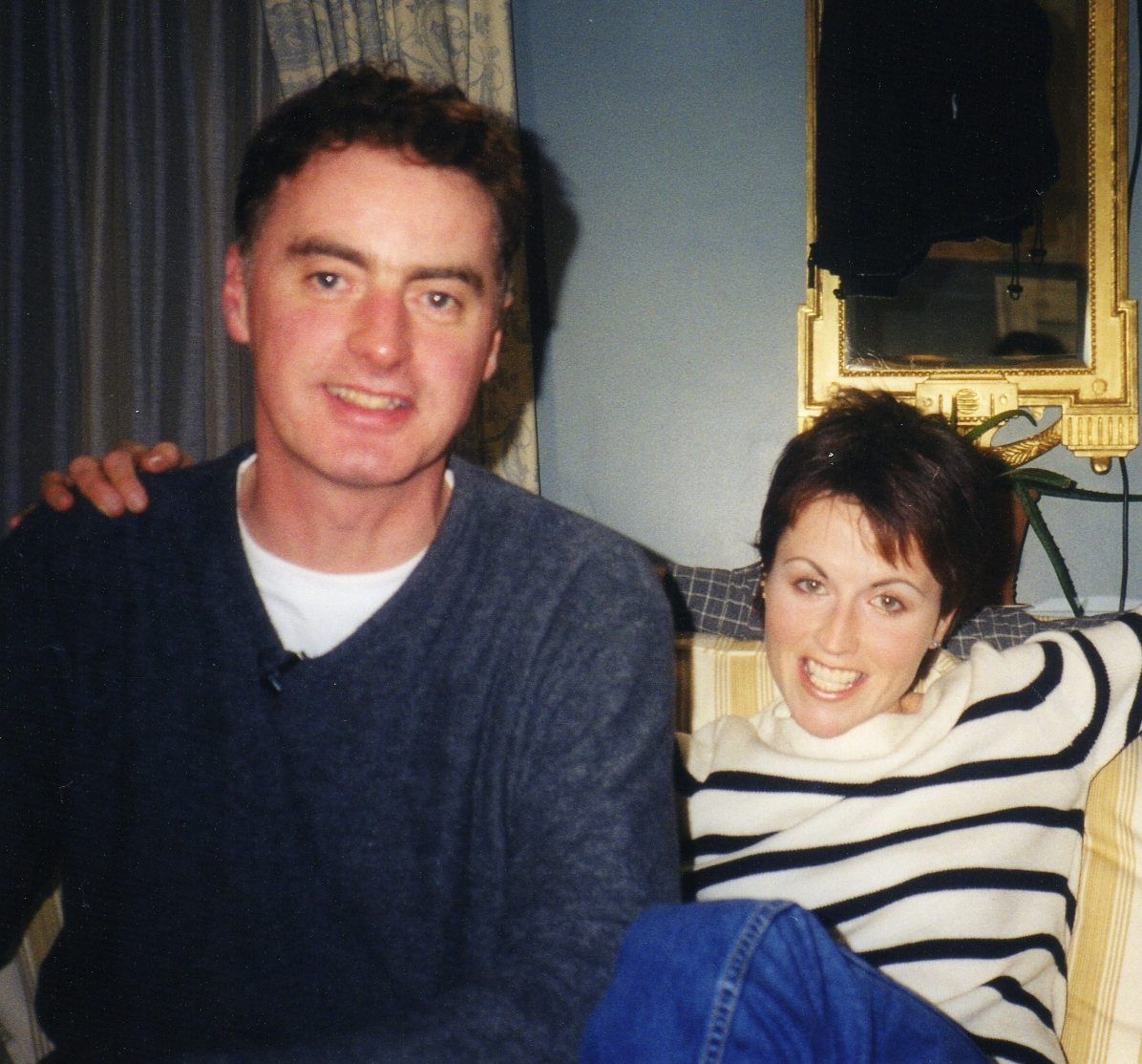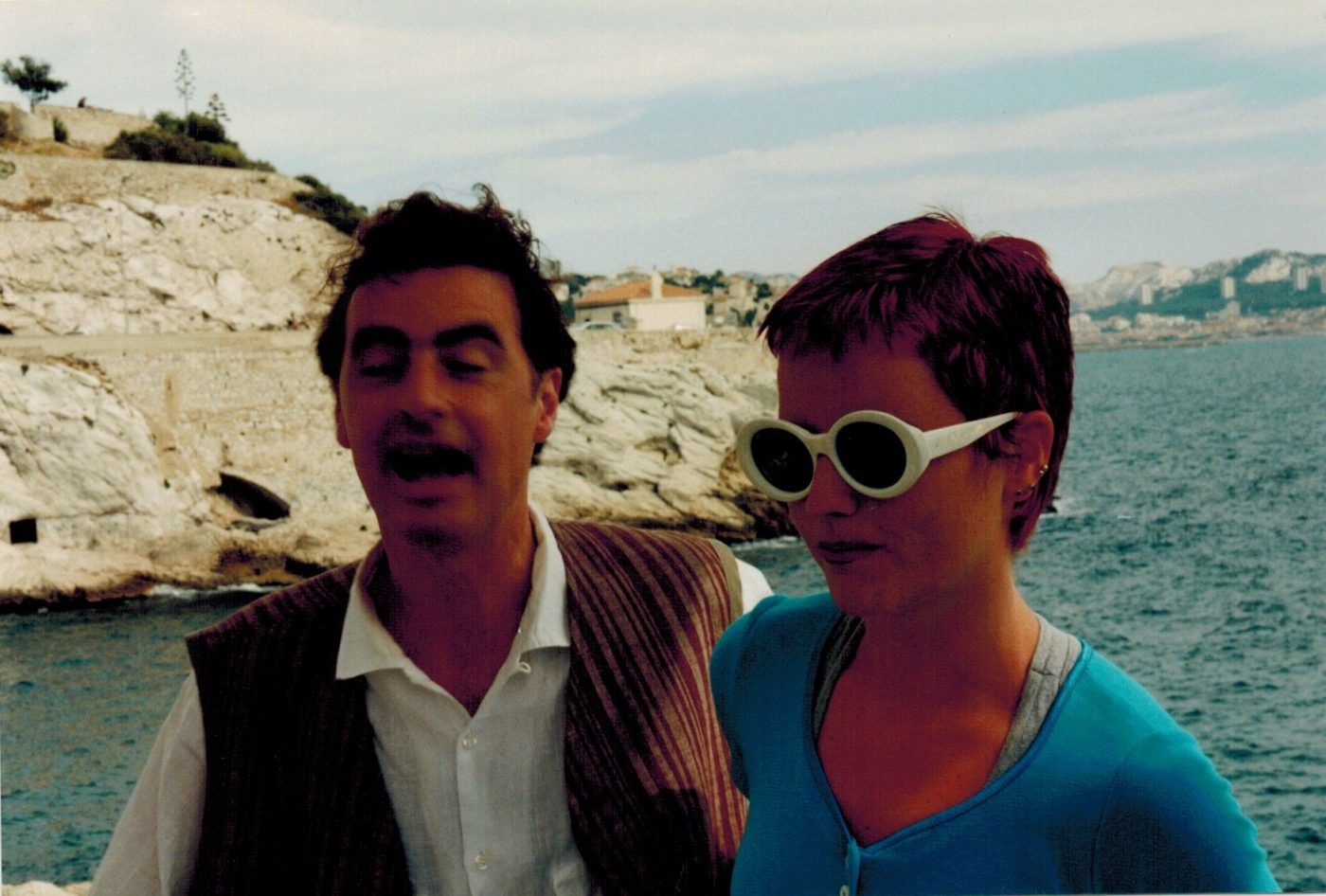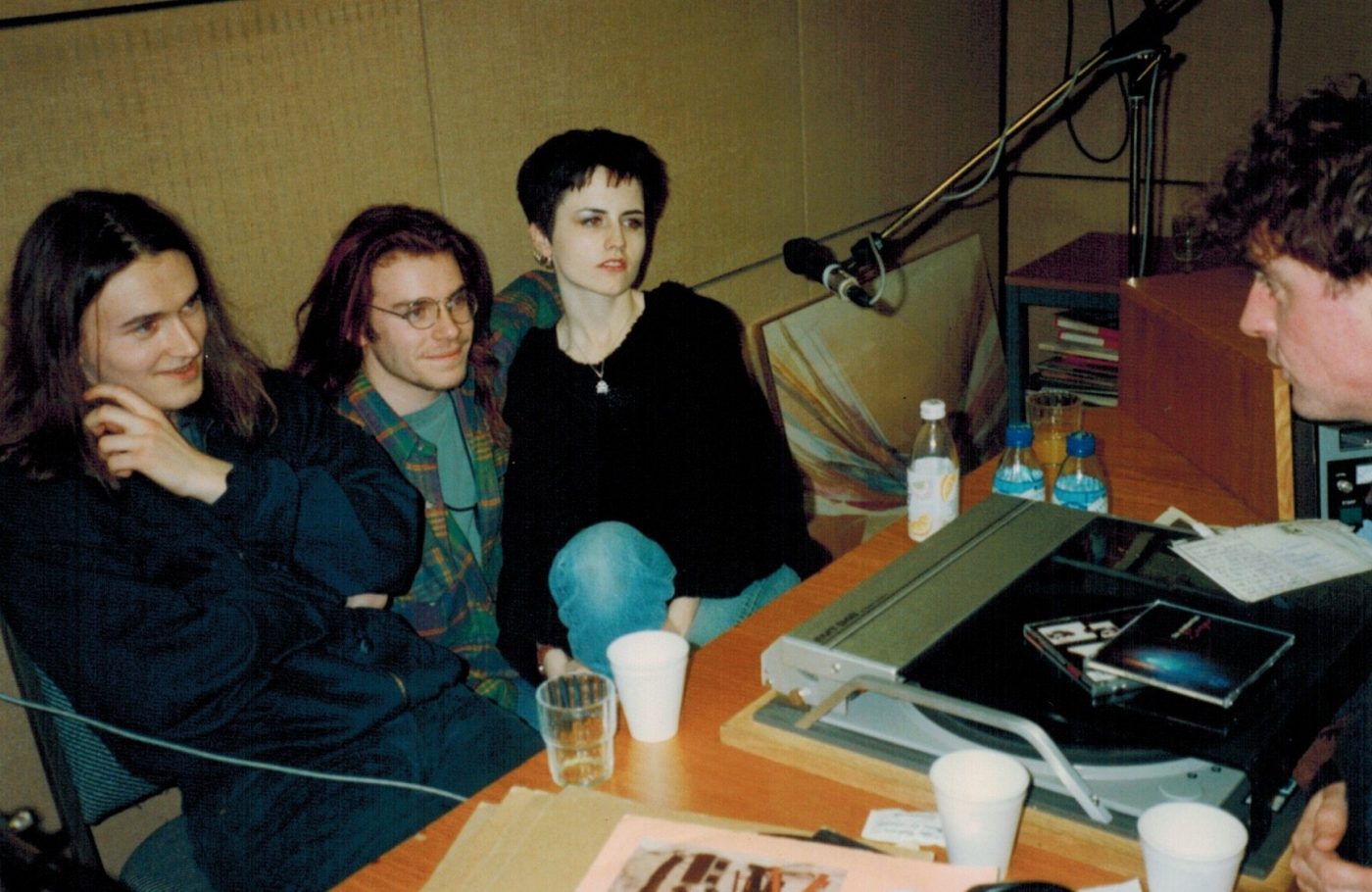Following the tragic death of Dolores O’Riordan, Dave Fanning will air a special tribute to The Cranberries' singer who died aged 46, earlier this year in London, on RTE One this evening.
The documentary, simply titled Dolores, focuses on the group’s heyday in the early 90s with archive footage and videos intersected with interviews with Dolores and The Cranberries.
“I think their biggest audience was 15-18 year old high-school girls in America. If you were 15-18 at that time, that was your thing, because you weren't going to be listening to a guy with torn jeans (Nirvana) and you weren't going to be going for this new thing from Britain (Brit Pop) that never meant anything in America anyway.”
Fanning accepts that, while many people will have been saddened and shocked by Dolores’ death, there will have been a number of people just as shocked at the reaction to her passing.
“There are still people scratching their heads going 'wait a minute, were they that successful?' Because when they were successful they were virtually always out of the country, they never rock ‘n’ rolled, they never got into any gossip, they never hung out, so people just didn't realise [how big they were] you know.”
The Cranberries always had good singles, and while I loved Linger, Dreams and Zombie, they never quite managed to suck me in to become a bona fide fan, I tell Fanning.
“Don't forget madchester has just happened, grunge was just happening and Brit pop was just about to start and we were being fed this by the magazines."
“One of the best examples [of how big they were] was when they went to tour America with Suede, who were on the cover of all 12 UK music magazines before they even released their debut album - they were going to conquer America, but, by the end of the tour, Suede were the support act."
Fanning cites “heavy rotation” on MTV in the USA and the band's regular appearances in US teen TV and films as a major part of their success. “MTV ruled, and once a guy in a suit said 'we're gonna push this band The Cranberries', that was it. It all falls into place.”
How did Fanning feel about the group at the time? “Were they one of my favourite bands? No. but I did like what they did. I was doing 2 TV (the Irish kids TV version of Top of The Pops at the time) and I was delighted to play the Cranberries, but then I slagged other ones that I had to play because I hated them” he says, jovially.
Tonight’s programme does not purport to be anything other than a reaction to Dolores’ untimely death.
“It's more about Dolores than the Cranberries, even when the Cranberries talk it's more about when Dolores came into the band. Really, it’s a picture of Dolores at a time when a lot of people in Ireland didn't realise just how big they were around the world because they were never in the papers like Bono or Sinead. Maybe a definitive Cranberries documentary is further down the line, this certainly isn't that.”
"A lot of it is to do with the pressures of touring, she's not one of these people who hasn't got an unspoken thought in her head, but she speaks very forthrightly and straight about the kind of person she is."
“It's so un-rock ‘n’ roll it's frightening” says Fanning, noting how down to earth they were. “They never partied - they'd rather go down the road for a pint with the local farmer. There were times when I met Dolores and I wanted her to be more rock 'n' roll, I didn't want her to throw a TV out a window, but she was so normal and a lot of people want more from their rock stars, you know what I mean?”
Throughout the archive footage, Dolores displays great candor about her struggles with the pressures of fame and Fanning praises her frankness. “She had to call off a $6m tour because it was getting too much for her. If people think that shows the vulnerability that we've seen in recent times, it's quite the opposite...to me, it showed great strength. She realised this is too much for me, she needed to get off the road.”
We ask Fanning about the inevitable comparisons that the public will make between Ireland’s two biggest female rock stars in the wake of Dolores’ death.
“Oddly enough, on the day she died, who did I meet that night but Sinead O'Connor at the Shane McGowan birthday party in the Concert Hall. People will be able to draw those parallels, but I don't know if they should because Sinead will be the first to say she's often been in a very bad state.
"But It's a very different thing - even though [Dolores] had recently documented problems with bipolar that she's talked about, and some sort of abuse in her youth, which she hadn't talked about before, though she vaguely references it in a kind of throwaway way in this interview from '99 (featured in the documentary)”
"People will add two and two together but that's nothing to do with me. I can't help that, but she's very honest about talking about the pressures of the whole thing, even the band say it would've been mad not to stop.
"Do you want me to get all Shakespeare on your ass and say: “There is a tide in the affairs of men which, when taken at the flood, leads on to fortune. They went with the flow 26 hrs a day and it burnt them out. They simply couldn't go on and nobody was listening. And then she was in a very happy place for so long. A mother, a wife, all those things.
"I didn't see Dolores that much in the last few years, but I know her father's death in 2011 really got to her, and then the divorce, the kids living in Canada and the air rage thing, but she was getting back. She was in London doing the D.A.R.K. thing, and she was talking to a band who wanted to cover Zombie and maybe have her appear on it and she was in London to do stuff with The Cranberries."
We note how touching it was to see the response of female musicians at home and abroad respond to Dolores’ death.
“There's Siouxsie with the Banshees, there's Shirley with Garbage, there's Debbie Harry with Blondie, there's Dolores with The Cranberries.
“I interviewed Blondie years ago, the four of them. I said 'let me get this right - you were annoyed because she was getting all the publicity and it looked like your album and single sales were because of her' and your man says 'yeah absolutely' and I said 'of course it was because of her'.
"'I don't give a damn if you were making good music, but it was her fronting the whole thing, people thought her name was Blondie. Stop being so stupid', and the other guys just roared laughing."
"The three Cranberries guys, they wouldn't for one second give out about Dolores getting publicity. She’s fronting a band of males. It's gonna be 90% about her, it just obviously is and they didn't give two hoots.”
'The Best of the Cranberries' says Fanning laughing, when we ask where the uninitiated listener should start. "There are some undiscovered gems, they have some lovely lilting pop songs with lovely arrangements that people don't know about on their albums, but go check them out yourselves."
Fanning sees a quite simple reason for the success and legacy of The Cranberries. “The songs spoke to people.”
“It's similar to the way The Smiths spoke to some people. The way some people talk about The Smiths and what they did to them for those four years is beyond my understanding. I love The Smiths, but when I hear people talk about them and what they did to them, or David Bowie on Top of The Pops doing Starman.
“These things are all who you are, what you are at a certain age. The Beatles were the ones who did it for me and I'd argue to the rest of the world that it's not my opinion that they are the best...they are the best and you're a dickhead if you don't agree.”
Are you saying Quincy Jones is a dickhead?
*laughs*
'Dolores' airs on RTE One tonight after Claire Byrne Live.



